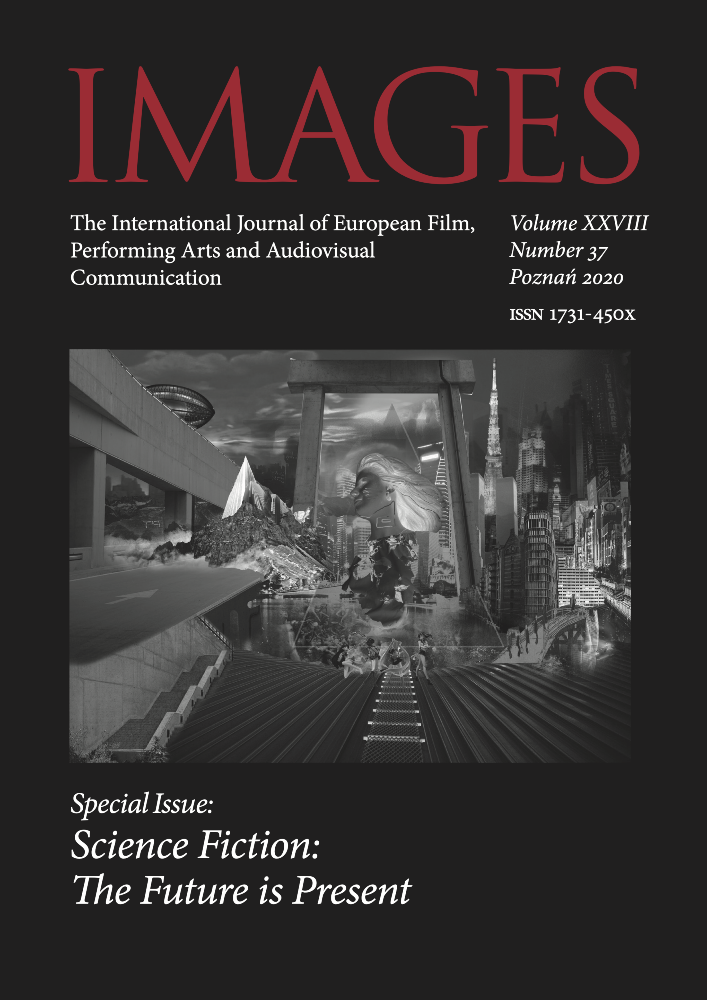Abstrakt
This paper examines the various ways in which contemporary Latin American science fiction films contest the neocolonial and neoliberal narratives, dominant in the region since the 20th century. I identify and examine strategies that filmmakers employ to challenge the common understanding of such notions as time, modernity and technological progress. I outline the visions of dystopias presented in the examined films, while also analyzing the counter-narratives introduced by filmmakers, which are mostly focused on creating a new, hybrid identity for a future citizen.
Finansowanie
Narodowe Centrum Nauki
Bibliografia
Adam B., Time, Cambridge 2004
Alihodžić D., Veseljevic Jerkovic S., The Boundaries of Dystopian Literature: The genre in context, Tuzla 2016
Bell A., Science fiction in Latin America: Reawakenings, „Science Fiction Studies”1999, nr 3, vol. 26, s. 441–446
Benjamin W., O pojęciu historii, [w:] W. Benjamin, N. Elias, Anioł historii: eseje, szkice, fragmenty, red. H. Orłowski, Poznań 1996, s. 5/7. Fragment za: <http://piotr.strebski.pl/wp-content/texts/philosophy/Benjamin01.pdf>, dostęp: 18.04.2020
Cua Lim B., Translating Time. Cinema, the fantastic, and temporal critique, Durham 2009
Deveny T.G., Migration in Contemporary Hispanic Cinema, Lanham 2012
González Echevarría R., Myth and Archive: A Theory of Latin American narrative, Cambridge, New York, Port Chester, Melbourne, Sydney 2006
Halle R., Offering tales they want to hear: Transnational European film funding as neo-orientalism, [w:] Global Art Cinema: New Theories and Histories, red. R. Galt, K. Schoonover, New York 2010, s. 303–319
Haywood Ferreira R., The Emergence of Latin American Science Fiction, Middletown 2012
Hummel A., Ługowska U., Ameryka indiańska, [w:], Dzieje kultury latynoamerykańskiej, red. M.F. Gawrycki, Warszawa 2009, s. 147–149
Jameson F., Progress versus Utopia; or, can we imagine the future?, „Science Fiction Studies” 1982, nr 27, s. 147–158
Jameson F., Archaeologies of the Future: The desire called utopia and other science fictions, New York 2005
Langer J., Postcolonialism and Science Fiction, Houndmills, Basingstoke, Hampshire, New York 2011
Langer J., The shapes of dystopia. Boundaries, hybridity and the politics of power, [w:] Science Fiction, Imperialism and the Third World, red. E. Hoagland, R. Sarwal, Jefferson, London 2010, s. 171–187
Le Guin U., Introduction, [w:] The Norton Book of Science Fiction: North American science fiction, 1960–1990, red. U. Le Guin, B. Attebery, New York 1993
Liverman D.M., Vilas S., Neoliberalism and Latin American environments, „Annual Review of Environment and Resources” 2006, nr 1, vol. 31, s. 327–363
Lucrecia Martel, por qué el fracaso del proyecto de “El Eternauta” la llevó a „Zama”, „La Gaceta Salta” 6.09.2017, <https://www.lagacetasalta.com.ar/nota/88774/ espectaculos/lucrecia-martel-fracaso-proyecto-eternauta-llevo-zama.html>, dostęp: 9.04.2020
Lyotard J.-F., The Inhuman. Reflections on Time, przeł. G. Bennington, R. Bowlby, Stanford 1998
Maj K.M., Antyutopia – o gatunku, którego nie było, „Zagadnienia Rodzajów Literackich” 2019, t. 62, nr 4, s. 9–29
McClintock A., Imperial Leather: Race, gender, and sexuality in the colonial contest, Abingdon-on-Thames 2013
Page J., Polytemporality in Argentine science fiction film, [w:] Simultaneous Worlds. Global Science Fiction Cinema, red. J.L. Feeley, S.A. Wells, Minneapolis, London 2015, s. 137–153
Page J., Retrofuturism and reflexivity in Argentine science fiction film: the construction of cinematic time, „Arizona Journal of Hispanic Cultural Studies” 2012, vol. 16, s. 227–244
Petras J., Veltmeyer H., Neoliberalism and imperialism in Latin America: dynamics and responses, „International Review of Modern Sociology” 2007, vol. 33, s. 27–59 Racięski B., Argentyna, Meksyk, Brazylia oraz pozostałe kinematografie latynoamery- kańskie, [w:] Historia kina, t. 4: Kino końca wieku, red. T. Lubelski, I. Sowińska, R. Syska, Kraków 2019, s. 605–640
Racięski B., Zapaśnik bawi i uczy. Społeczne funkcje filmów o Santo, [w:] Bękarty kinematografii, czyli rzecz o filmach nie(do)cenionych, red. B. Racięski, F. Nowak, J. Łuniewicz, Wrocław 2014, s. 113–126
Ross M., The film festival as producer: Latin American films and Rotterdam’s Hubert Bals Fund, „Screen” 2011, nr 2 (52), s. 261–267
Schroeder Rodrıguez P.A., Marxist Historiography and Narrative Form in Sergei Eisenstein’s ¡Que viva Mexico!, „Rethinking Marxism” 2009, nr 2, vol. 21, s. 228–242, DOI: 10.1080/08935690902743393
Spencer D., Clandestine Crossings: Migrants and coyotes on the Texas–Mexico border, Ithaca 2009
Licencja
Prawa autorskie (c) 2020 Bolesław Racięski

Utwór dostępny jest na licencji Creative Commons Uznanie autorstwa 4.0 Międzynarodowe.

